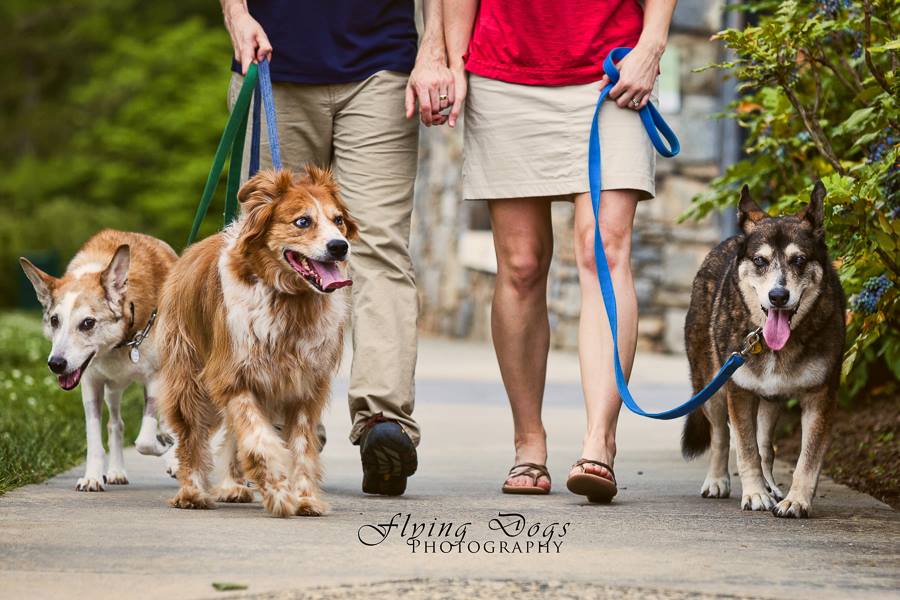The Humane Society of the United States (HSUS) estimates that animal shelters take in 6-8 million cats and dogs each year in the United States, of which around 3-4 million unfortunately are euthanized. It wasn’t long ago, in the 1970s, that American shelters euthanized anywhere from 12 to 20 million cats and dogs whereas today shelters euthanize on average around 2.7 million animals. While these numbers represent amazing progress in the ways U.S. shelters are creatively finding ways to place animals in loving, supportive homes, there are several reasons adopting a shelter animal can be challenging and possibly discouraging to so many.
Here at Dog Tag Art, we not only create and donate custom pet id tags for rescues and shelters in need, we 100% believe that adopting a rescued animal is beneficial for saving the life of an abused, abandoned or neglected animal. It is also beneficial in so many other ways to the health of not only your loving new best friend but yourself and the health of our pet community overall. However, rescue animals can pose occasional problems that are not always apparent to people adopting or rescuing them. Issues such as medical problems, aggression, and other behavioral issues may not show for weeks, months, or in some cases years.
So how can you adopt a rescue and feel comfort in knowing you’ve made the right decision, can care for your new friend and live a long, happy life together? To say it simply: there is an inherent risk anytime that you think about adopting. However, that should not make you shy away from rescuing a sweet baby’s life but it is also important to understand the risk and be prepared to work with your rescued animal if/when those problems arise.
Here are two common problems with rescue dogs we’ve seen in our personal friend’s rescued pets:
1. Leash Reactivity: While home on Christmas Vacation my friend Cara adopted an adorable lab mix at a local no-kill animal shelter. After a few days of showing off her new friend at local dog parks, disc-golf courses and pet-friendly downtown cafes, she began to notice a serious aggression her newfound friend was showing towards other dogs. After lunging at another dog and nipping it’s ear at a local dog park then attempting to bite a Dalmatian while walking downtown, she frantically called me and asked what she should do. I told her to come over with him and let her introduce him to my 9-year-old German Shepherd mix (also a rescue dog) and we could see what happens in a controlled environment. The same incident occurred. As soon as he was out of the car, he lunged forward, teeth gnashed, ready to do some serious damage.
She later called a pet behavior specialist, which we recommend doing in any serious behavioral issue, and has been working alongside a trainer for three months to lessen the cause of the problem, which the trainer quickly pointed out as leash reactivity. Here are a few great tips for dealing with leash reactivity in your pet from the Animal Humane Society. We also highly reccomend letting others know about your pet's aggression or reactivity issues to others with one of our personalized pet tags. These are really helpful as a warning sign or in case of an emergency, to help others understand and know how to approach and behave around your pet.
2. Aggression Problems: A few months ago, another friend of mine adopted a rescue from an area no-kill shelter as well. She had done months of research and even volunteered her time in the shelter because it is something that really hits home for her. She wants to lend a helping hand plus it gave her an inside look at the working environment of shelters and the needs and conditions for the animals and their temporary care givers. After months of volunteering and researching breeds, a dog arrived at the shelter that she fell in love with. She went through the process of adopting him, took him home and after a few weeks noticed some serious territorial issues. Whenever her friends came over, he would nip and growl at them, one day even biting the tip of a friend’s nose as they leaned in to pat it’s head. The dog was never aggressive to her or her boyfriend but after several attacks on friends and children while out on walks, she decided to look into hiring a trainer.
It has been several months now and the dog has not yet improved. The trainer says this is most likely due to the dog’s age, as he was four years old when adopted. For more information on common problems with rescue dogs, the National Animal Interest Alliance has great tips and more on common behavior and aggression problems in rescue dogs.
| **Please note that we do not in any way wish to discourage anyone from adopting a rescue pet. These common problems with resuce dogs do arise from time to time and it is important to be educated and aware so that you can better help an adopted pet to adjust to their new environment. We simply wanted to share personal stories and give helpful information and advice about problems that can surface in rescue dogs. We also have many, many friends with ridiculously happy, abundantly healthy and insanely adorable rescued pets. We whole-heartedly believe in rescuing pets from shelters above any other method. |
|
A mountain-loving dog mama, miss Tiffany Narron calls our beautiful city of Asheville home along with her furry little sidekick Bella Blue. Together these two are never bored as they run the forest trails and hike the wondrous mountain-tops in and around Western North Carolina. The two make quite a pair, pushing each other onward and upward to the next wild adventure and journaling their stories and secrets along the way to share some of their silly secrets and discoveries here with you! |



